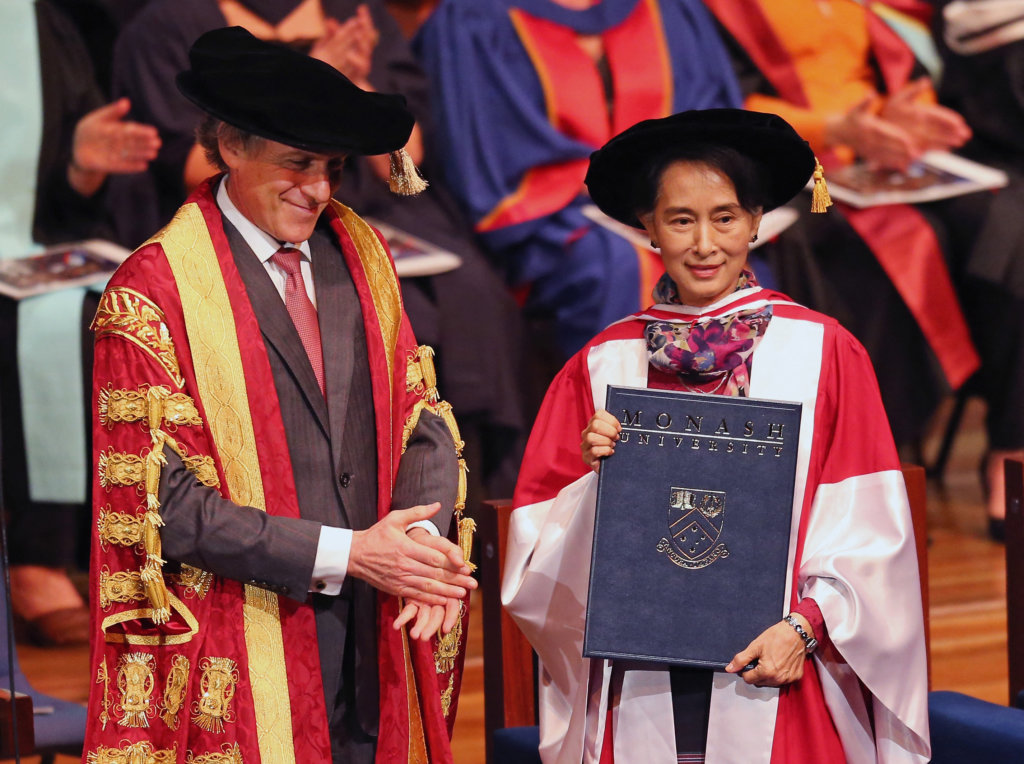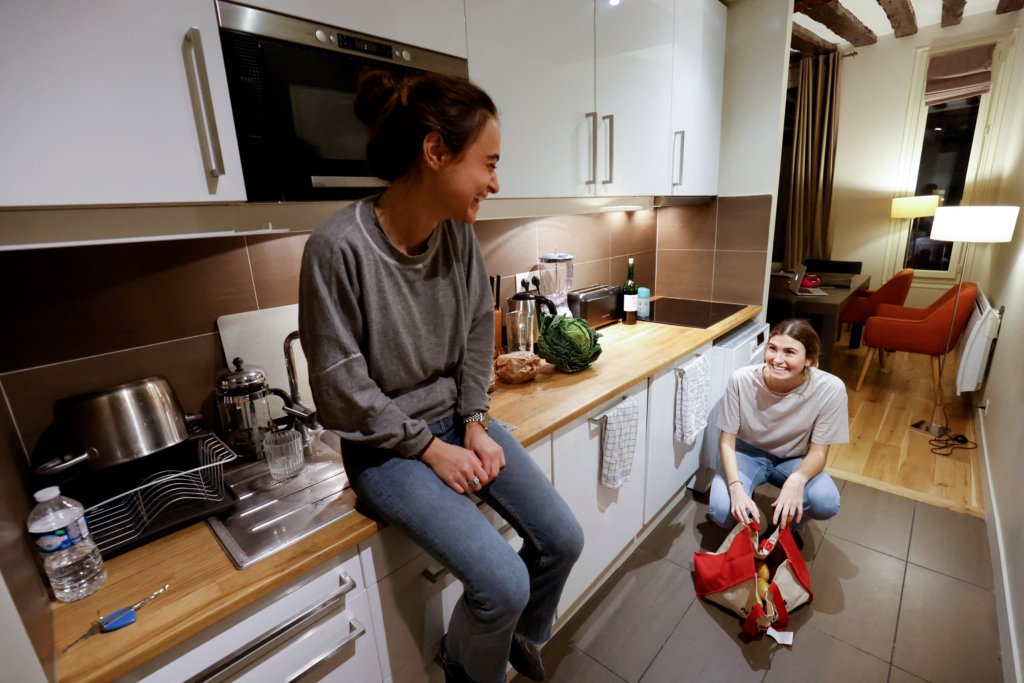
Australia is a land of opportunities. Often referred to as “Lucky Country” — in reference to author Donald Home’s book with the same title published in 1964 — living in Australia offers many perks and benefits to migrants and international students.
The Land Down Under is one of the most prosperous nations in the world, offering an abundance of economic opportunities to its citizens and foreigners. It is home to bountiful natural resources, a diverse collection of flora and fauna and opportunities to carve oneself a successful future.
Another unique factor about living in Australia is its strategic position as an educational hub for international students. Home to 43 world-class universities, there’s nothing wasted when you invest in an education in Australia. The Oceanic nation has attracted an influx of talented foreigners to its shores, particularly international students from all corners of the world.
According to the Australian Department of Education, Skills and Employment, there were 440, 129 international students enrolled in Australia for the January-March 2022 period. A huge chunk of the foreign student population include students from India, who make up nearly 20% of the international student population in Australia. There were 72, 642 international students from India in Australia for the Q1 2022 period.
If you’re an Indian student who is thinking about relocating to the Land Down Under, here are nine important aspects of living and studying in Australia that you should know before making your big move.
View this post on Instagram
Studying and living in Australia: What to know
Academic reputation
Australia is home to 43 universities, with five of them ranked among the top 50 universities reported in the latest QS University rankings survey.
From the recently published Impact Rankings 2022 survey, the University of Western Sydney came out on top alongside two other universities (University of Technology, Sydney and La Trobe University), which were ranked in the top 20 institutions which are on the right track to meeting the United Nations’ Sustainable Development Goals (SDGs).
The rankings spotlights institutions that are working hard to tackle global issues such as gender inequality, quality education for all, climate change, and achieving peaceful societies and economic growth.
This goes to show that universities in Australia play an important role in not just providing education to leverage a student’s personal gain, but it also allows them to contribute to something that is larger than themselves.

Monash University in Australia is among the most research-intensive universities in the world and a member of the Group of Eight (Go8) universities. Here, the State Counsellor of Myanmar from 2016 to 2021, Aung San Suu Kyi, was presented with an honorary doctorate award from Monash University back in 2013. Source: Scott Barbour/AFP
Student visa requirements
If you are a first-time international student from India planning to study in Australia, the most common type visa that international students hold would be the Subclass 500 student visa.
This visa permits them to participate in an eligible course of study, bring family members over to Australia and work unlimited hours in any sector (following the recent temporary change to visa work conditions for students and working holidaymakers).
It also allows international students to stay in Australia for up to five years, and students are charged a one-time fee of 630 Australian dollars to have it processed.
Visa processing times vary indefinitely. Despite the reopening of borders late last year, many international students reported that their student visa applications were taking longer than usual. Some even had their scholarship revoked as delays in visa issuance surpassed the two-year mark due to the COVID-19 pandemic.
If you wish to work in Australia upon graduation, you may apply for a Graduate Temporary (Subclass 485) visa.
English language proficiency
While some universities may make an exception, many universities in Australia require international students to submit proof of their English language proficiency for acceptance into a programme. This would depend on factors such as a student’s educational background and country of origin.
Two popular English language proficiency tests that Australian institutions accept include the International English Language Testing System (IELTS) and the Test of English as a Foreign Language (TOEFL).
There are two IELTS tests: namely for academic or general training purposes. International students should take the IELTS academic version. It assesses their English language skills in listening, reading, writing and speaking.
Alternatively, enrolling in a pre-enrolment English programme (PEP) in Australia can help Indian students who have yet to meet the English language requirements of Australian universities to brush up on their language proficiency.
Housing options
Any international student should sort out their accommodation before moving to Australia. There are many things to factor in when looking for the right place.
Naturally, the cost of student housing will vary depending on whether a student chooses to live on or off-campus, housing type, nearby amenities, city and county.
In cosmopolitan cities such as Sydney and Melbourne, international students may have to fork out more for rent. However, there are shared accommodation options and student housing groups on Facebook for cheaper housing options.
Bear in mind, there may be shortcomings with cheaper accommodations. They may only be partially furnished or unfurnished, so you may incur additional costs in finding the necessary equipment and furniture for your convenience.

Indian students who are first-timers to Australia could seek on-campus housing for convenience and support from their respective universities. Source: Ludovic Marin/AFP
Living costs
Settling into Australia on a student budget can be challenging, especially since living in Australia can be a costly affair. In Sydney, it is estimated that students could rack up to A$1,962.80 per month in living costs.
This makes it essential that you learn to be financially savvy.
According to the Department of Home Affairs, the estimated cost of living in Australia for international students is a whopping A$21, 041 over a 12 month period (October 2019 estimate).
View this post on Instagram
Healthcare options
To study in Australia, students must have an Overseas Student Health Cover (OSHC). It covers visits to the doctor, some hospital treatments, ambulance cover, and limited pharmaceuticals (medicines).
OSHC insurers can provide anything from a basic product to a fully comprehensive plan, on top of the compulsory minimum services, extra services as specified under the particular policy. Find out more about OSHC here.
Check the duration of an OSHC plan here. You can also purchase a private health insurance plan to cover what OSHC does not cover.
View this post on Instagram
Working while studying
It is possible for international students in Australia to work while on a Subclass 500 student visa. Even better, they are allowed to do it full-time, as a recent law change has granted temporary relaxation of work hours to international students, permitting them to work more than 40 hours per fortnight.
However, it is important that you stay vigilant of any changes to visa rules, including those that affect your work rights. It is also important to bear in mind that more hours does not mean that you should prioritise work over study while on your student visa.

As an international student in Australia, you are allowed to work part-time while studying. Source: Roy Rochlin/AFP
Pathway to PR
There are several pathways in which you, as an Indian national, can secure permanent residency in Australia.
The three common routes are going through a family-stream permanent visa, work-stream permanent visa or business or investor-stream permanent visa.
If you are a talented professional in a particular sector of the Australian economy, you can opt to apply for the Global Talent Visa (subclass 858).










